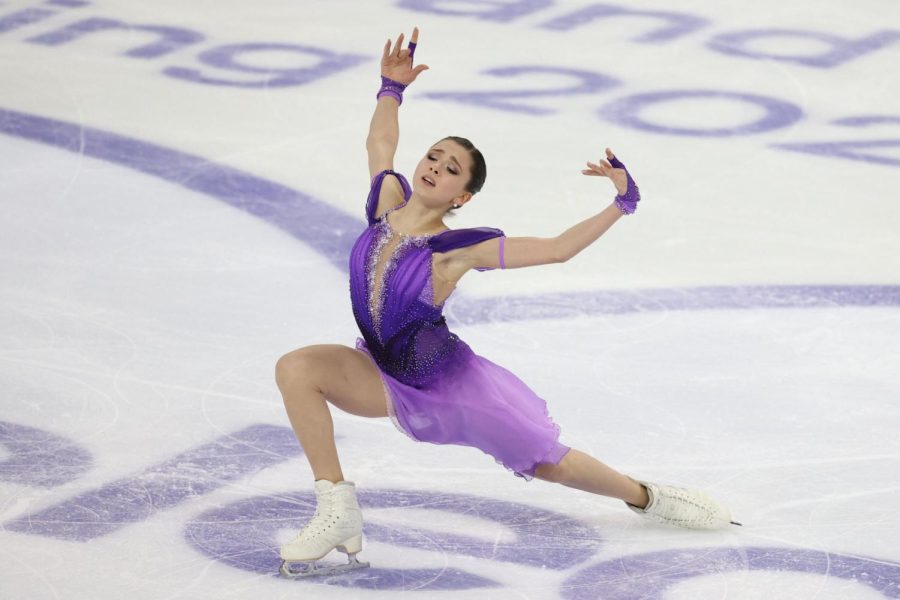Kamilla Valieva’s doping scandal calls for reform on drug use policies
Kamila Valieva faces controversy when found with drugs in her system, leaving people debating about who’s at fault.
February 20, 2022
Many teenagers are self-conscious and do not like a lot of attention. Imagine being only 15-years-old, and having much of the Olympics-crazed world looking at you.
Russian Olympic Committee figure skater Kamilla Valieva has been on the receiving end of much scrutiny and criticism from the public after testing positive for a banned substance following the winning of gold in the figure skating team event on February 7. It was discovered that the teen had three substances in her system used to treat heart conditions, one being trimetazidine, a banned drug by the Global Anti-Doping officials.
According to Travis Tygart, the chief executive of the United States Anti-Doping Agency, the substance can increase endurance, reduce fatigue, and promote efficient use of oxygen. Valieva claims that the usage of the drug was accidental and was caused by contamination from her grandfather’s medication, with whom she often spends time. Even with these heavy allegations, the panel of arbitrators cleared her to compete. Shortly after the decision, Valieva returned to the rink and took first place in the short program on February 14. However, the International Olympic Committee said any medal ceremony involving Valieva could not proceed until their investigation was closed.
Although Valieva’s use of the banned substance may have been accidental it doesn’t cover up the fact that the drug was in her system when she took gold in the team event. Any substance that enhances physical performance would have given her an upper hand compared to the other skaters. This put the entire Russian team’s medal in jeopardy. If she is later disqualified, everyone on the team loses their medals.
Valieva does not deserve the backlash she is currently receiving because she is likely just following orders and might be unaware of the consequences of her actions. If anything, it is the adults who have let her and the Russian team down.
A similar controversial doping incident occurred during the 2020 Tokyo Olympics trials where American sprinter Sha’Carri Richardson tested positive for marijuana usage. Richardson had recently lost her mother and was using it as a way to cope with the loss. The usage of marijuana is completely legal in Ohio where Richardson was residing at the time. Nonetheless, the World- Anti-Doping Agency banned her from competing, preventing her from entering the Olympics.
Yet studies conducted by the NCBI inform that, unlike trimetazidine, there is no evidence indicating that marijuana enhances performance. Meaning that Richardson had no physical advantage compared to other athletes. It seems unfair that Valieva is permitted to compete even with performance-enhancing substances in her system. While Richardson was not, merely due to usage of a substance that is less harmful than alcohol.
Many believe, including American politicians such as Jamie Raskin and Alexandria Ocasio-Cortez, that race played a part in the decision of Richardson’s ban. Systematic racism is well intertwined with anti-marijuana laws. According to Marijuana Policy Project, African- Americans are three times as likely to be arrested for marijuana usage compared to whites, even though marijuana usage is equal among all races.
Comparing the two cases reveals the standards of evaluation for doping are deeply flawed. All athletes are negatively impacted by inadequate and poor decisions made by officials. The World-Anti Doping Agency needs to reassess its policies to make sure sporting events are fair and clean. Both the fans and the athletes deserve that.


